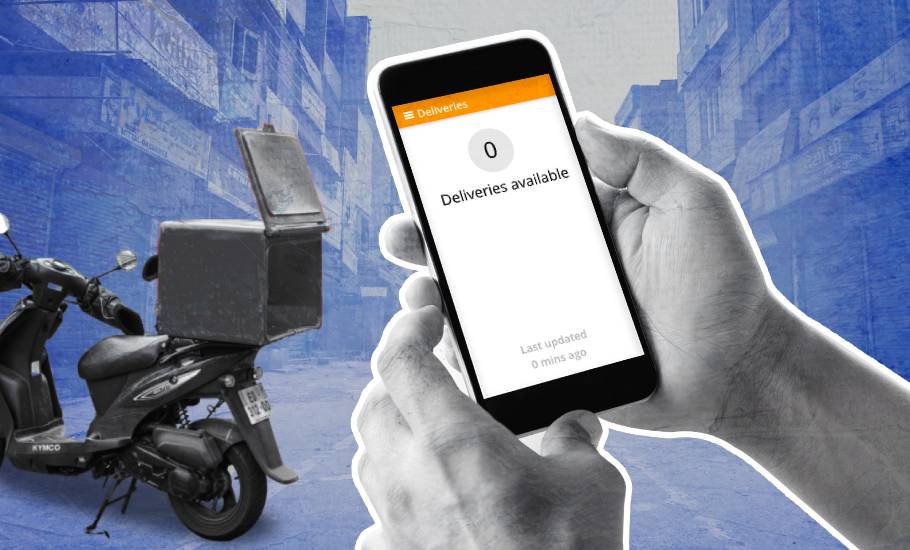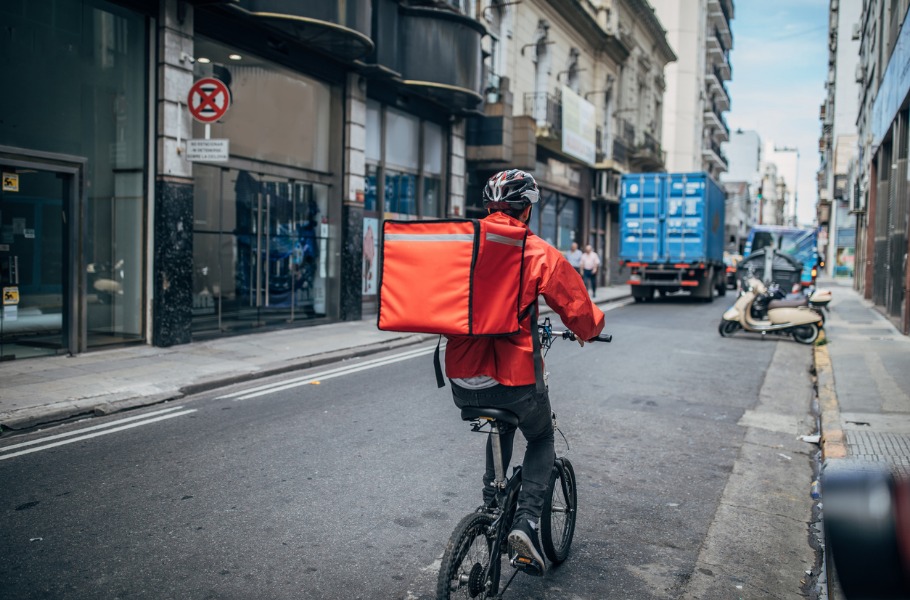
- Home
- India
- World
- Premium
- THE FEDERAL SPECIAL
- Analysis
- States
- Perspective
- Videos
- Sports
- Education
- Entertainment
- Elections
- Features
- Health
- Business
- Series
- In memoriam: Sheikh Mujibur Rahman
- Bishnoi's Men
- NEET TANGLE
- Economy Series
- Earth Day
- Kashmir’s Frozen Turbulence
- India@75
- The legend of Ramjanmabhoomi
- Liberalisation@30
- How to tame a dragon
- Celebrating biodiversity
- Farm Matters
- 50 days of solitude
- Bringing Migrants Home
- Budget 2020
- Jharkhand Votes
- The Federal Investigates
- The Federal Impact
- Vanishing Sand
- Gandhi @ 150
- Andhra Today
- Field report
- Operation Gulmarg
- Pandemic @1 Mn in India
- The Federal Year-End
- The Zero Year
- Science
- Brand studio
- Newsletter
- Elections 2024
- Events
- Home
- IndiaIndia
- World
- Analysis
- StatesStates
- PerspectivePerspective
- VideosVideos
- Sports
- Education
- Entertainment
- ElectionsElections
- Features
- Health
- BusinessBusiness
- Premium
- Loading...
Premium - Events

As cities unlock, fate of migrant workers in gig jobs remains locked
With the lockdown being relaxed in phases, many believe that the gig economy will be back to normal sooner than later and help migrant workers earn their livelihood.

Engineering graduate S Saravanan left his Madurai home for Chennai to work in a BPO company for a paltry pay of ₹11,000, but found it difficult to make ends meet. That’s when a friend introduced him to a food aggregator. The lucrative package on a commission basis and the flexibility of working hours suited Saravanan and he soon became one of the thousands of food delivery boys in...
Engineering graduate S Saravanan left his Madurai home for Chennai to work in a BPO company for a paltry pay of ₹11,000, but found it difficult to make ends meet. That’s when a friend introduced him to a food aggregator. The lucrative package on a commission basis and the flexibility of working hours suited Saravanan and he soon became one of the thousands of food delivery boys in the city.
In the new job, he made around ₹15,000-25,000 per month and also got incentives for more deliveries. “It was easy for me to survive, pay back my loans and give some money to my family as well,” he says. But that was until COVID-19 struck.
Cut short by COVID-19
Although delivery boys like Saravanan and some others did not lose their jobs, they found it difficult to keep going.
“In the initial days, when food delivery was banned, I managed with my savings,” he says. But even after food deliveries were allowed, things didn’t get back to normal as he would have wanted. Not many people ordered food online and he got just 2-3 deliveries a day.
Moreover, since most hotels did not open, people would order from distant locations. “So even for those 2-3 deliveries, we had to travel a long distance,” he recalls.
Apart from the delay and extra cost for fuel, he had to deal with angry customers too.
“I got less than ₹10,000 in May as there were not many orders,” he says, adding that with this, he won’t be able to repay the loan taken for his sister’s marriage, which he took when things were going good.
Even though the lockdown has been lifted, Saravanan is not sure things will be back to normal soon. “I am considering going back and staying home for at least three months until the COVID-19 situation improves,” he says.
Like him, D Ravi, an electrician from Madurai who had registered with Urbanclap and found a sustainable livelihood in Chennai, too was hit hard by the lockdown.
“Before registering with Urbanclap — a home services app — I used to attend to people in my own network. Mostly I had to live hand-to-mouth during those days. But once I registered with Urbanclap, I started getting more work and I was busy every day. I earned at least ₹30,000 per month and life was good,” he says.
The advantage of taking the work through the app is that people mostly don’t negotiate and there was less tension and more profit, he notes.
However, with the lockdown, all his business dried up. “Even my acquaintances stopped calling me long ago as I used to be busy attending to customers through the app.”
Ravi has sent his family back to Madurai. “I have two children and a wife to take care of. In Chennai, even during the lockdown, the cost of living is very high and I could not manage. So, I had to send them back and I am surviving with my savings,” Ravi adds.
Ride halted
Similarly, auto and cab drivers who had associated themselves with the Ola and Uber apps, besides transport agents or companies that catered to the IT industry, too faced a similar fate.
R Srinivasan, a 29-year-old native of Thanjavur who had come to Chennai in search of a job three years ago, says he bought a car on loan after seeing fleets outside IT companies where he used to go for interviews.
“When I asked a driver, he said he got a handsome pay from the IT companies, apart from which he also used to go on trips on his own,” he says.
This helped him earn around ₹40,000-50,000 per month. “But now the situation has become bad.”
While the initial total ban on vehicle movement hit the auto and cab business, the phased opening did not help much because of the restrictions put by the government. For instance, a car can have only three people, including the driver, and only one person can travel in an auto apart from the driver.
With most people staying at home to avoid getting infected and many others working from home even after the easing of the lockdown, these restrictions came as a double whammy for the transport business and affected the driver-partners who had taken cars on loans.
Srinivasan says as he had spent his savings on settling his education loan, when the lockdown was imposed, I was solely dependent on the day-to-day salary. When the going got tough and he was not able to make enough to survive, he left for home in Thanjavur.
It’s been three months since he paid his EMI for his car loan. “To be frank, I did not have money to do even the minimum recharge for my mobile phone and my incoming calls have been barred. Since I am not doing any work, I did not bother,” he says.
When gig economy brought people to cities
Most of the gig economy workers are migrants like Saravanan, Ravi and Srinivasan who came from smaller towns to the big cities in search of work. In the absence of regular employment, the gig jobs offered them an option to survive. Besides, flexible work hours remain a big factor. For many, these jobs were an additional gig to earn some extra money. A cab driver associated with a transport company could easily work with a ride-hailing company during his free hours.
S Balaji from Erode used to work for a private bank in Chennai as a sales executive during the day. And after meeting his target of selling POS machines, he would work for Ola’s bike service, earning about ₹500 a day from the gig.
Enabled by high-speed low-priced internet and growing number of innovative businesses, companies like Uber, Ola, Zomato, Swiggy, UrbanClap, BigBasket, and others became huge creators of jobs. According to various reports, by 2018, Swiggy had over 2.1 lakh delivery persons across the country while Zomato had about 2.3 lakh and UrbanClap 20,000. Uber and Ola were reported to have about 3.5 lakh and 6 lakh driver-partners respectively, as of June 2018.
These companies were hitting all the right notes and bringing in huge amounts of cash from investors, which enabled them to offer services to customers at massive discounts and keep the system running. As lack of profits was becoming an issue, they were looking to shift gears when COVID-19 brought everything to a stop.
Job loss
With no or little business, the companies were forced to lay off staff and cut salaries. In March, the orders on Swiggy and Zomato had dropped by 60%. National Restaurant Association of India president Anurag Katriar had said that about 95% of restaurants had gone offline and that the staff can’t be put at risk. As a result, the supply was also not very smooth.
Swiggy fired around 1,100 employees, Zomato cut 13% of its staff and effected up to 50% pay cuts by May while UrbanClap had let go off 40% of its staff before COVID-19 struck. While Ola cut 1,400 jobs, Uber did try to make up by providing grants of ₹500 per week to its driver-partners.
Many gig workers like Saravanan were forced to stop working and head home, unable to sustain themselves with the meagre income.
Hope of revival
With the lockdown being relaxed in phases, many believe that things will be back to normal, sooner than later. Experts believe some jobs may soon become extinct because of the fear of COVID-19 spread. On the other hand, the fear of contracting the virus from public places may help revive certain jobs related to delivery, beauty and personalised healthcare, etc.

Economist Venkatesh Athreya says that the gig economy has been facing the crisis even before the COVID-19 lockdown and it is not new. “There has been less demand even before COVID-19. Whatever has happened to the industry is not just because of the COVID-19,” he says.
“How the gig economy performs depends on how the larger economy is performing. Gig economy attends to the needs of not the basic classes but of the elite. I don’t see the revival of the gig economy until the larger economy is good. It may take at least a year,” Athreya opines.
Balaji, who is sitting at home in Erode unable to do both his jobs, wonders how things may unfold in the coming days. He feels his bank job may soon become unviable. “Rather a full-time bike-selling gig may hold more promises,” he hopes.
Srinivasan, meanwhile, is helping his father in their small farm in Thanjavur. He says he will be back to work once the restrictions are relaxed. “Now that most IT and other companies have allowed work from home, it will be difficult to find as many riders. Once the situation returns to normal, I will go back to Chennai and continue work,” he says.
He feels that it is a temporary crisis and is confident that the industry would bounce back.
Ravi too is hopeful that once the economy revives, he can bring back his wife and children to Chennai and live their big city dream, happily ever after.
(This story is part of a series on Migrant Workers)
